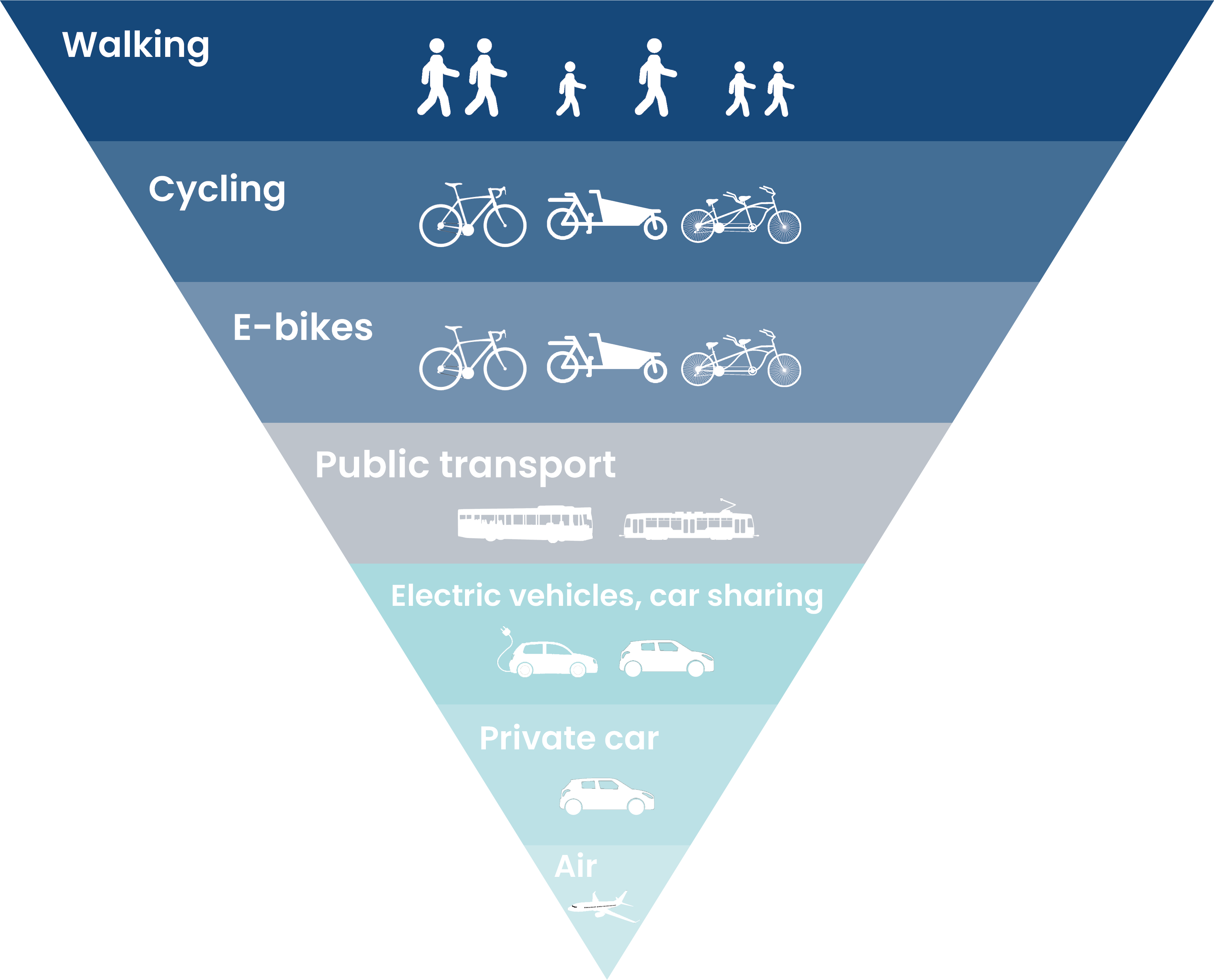Introduce a business mileage claims system
Your ‘grey fleet’ or ‘grey fleet mileage’ are business journeys that are made by an individual using their own personal vehicle. The individual then claims back a mileage rate from your organisation.
Traditionally, organisations rely on individuals to confirm mileage, however distances are often rounded up which, across a large workforce, can have a large impact on mileage claims. Energy Saving Trust recommends that organisations implement a mileage claim system that records start and end postcodes for journeys, along with key information such as vehicle registration, proof of business insurance and renewal date, and proof of MOT and renewal date. If you are not currently collecting this data, you may not be fulfilling your duty of care responsibilities to ensure that your vehicles are fit for purpose, adequately maintained, insured and roadworthy.
There are also apps available that can detect car journeys and allow drivers to categorise them as either business or private.
Organisations that introduce a mileage claims system usually see a 10–20% drop in mileage claims.
Adopt pool cars, hire cars and car clubs
Using pool, hire and car club cars provides the following benefits:
- lower administration costs due to reduced expense claims
- increased levels of active travel used for work commutes, as employees no longer need to have their vehicle onsite for work trips
- reduced carbon footprint and improved air quality
- lower risk of unroadworthy and uninsured cars being used for work and the associated liability
Substantial savings can be achieved by replacing grey fleet with pool cars.
EV pool cars
The modern pool fleet, if well managed, can be a simple, cost-effective, zero emission and safe method of meeting the transport needs of staff.
It is important that the vehicles are:
- affordable – whole life costs (WLC) the same or lower than grey fleet
- fit for purpose – equipped to carry equipment or clients
- zero emission (or low emission) and LEZ / CAZ compliant
- safe – meeting the Euro NCAP 5 Star safety standard
- attractive – modern and comfortable, staff should want to drive them
- easily booked – ideally with 24/7 access
A high level of utilisation is the single most important factor in achieving a cost-effective electric pool fleet. If staff must drive, the pool cars should be the first option for everyone before considering other vehicles such as their own car, a hire car or a car club car.
Encouraging your staff to follow this hierarchy is very important. Training on driving an electric vehicle, how to charge the vehicle and a simple booking system are all effective ways to encourage staff to follow the process. Some organisations go a step further and implement a ‘stick’ approach whereby staff cannot claim mileage on grey fleet unless pre-authorised.
Hire cars
Most large organisations can hire cars, self-insured, on daily rental for a relatively low cost. A small car can cost as little as £20 a day.
The formula for working out the breakeven mileage for a hire car is simple. Deduct the hire car’s fuel cost per mile from your grey fleet mileage rate and divide the daily hire cost by the residual mileage cost.
Hire car contracts can specify that vehicles are either low emission (ie under 100g/km CO2) or ultra-low emission, and that they meet the Euro NCAP 5 Star safety standard.
Car clubs
Local car clubs can be cost-effective for short duration trips or where parking for pool vehicles is limited or non-existent. Car club vehicles are generally new, and either low emission or electric, which means they can help to reduce fleet carbon dioxide emissions.
The process for using car club vehicles is simple:
- book for as little as half an hour at a time, using phone, smartphone app or internet. The booking can be made ahead of time or at a few minutes’ notice
- unlock cars located at designated parking bays, which can be accessed using an RFID card
- the driver then enters a pin and drives away, returning the car at the end of the journey
- charges include fuel and maintenance costs. A subscription charge is paid monthly or annually. Payment is usually by the hour and by the mile, although some clubs include some mileage in the hourly charge
Because the vehicle is charged by the hour and by the mile, this type of hire is suited to short-duration, high-mileage trips.
Car club operators also offer a ‘pool car’ service. The car club owns the vehicle and manages the booking system, maintenance and cleaning of the vehicle for a fixed fee per month. In 2018, Highland Council adopted car club vehicles and encouraged staff to use them. This reduced their annual business mileage by 825,000 miles and produced savings of £400,000 and 371 tonnes of CO2e (The Highland Council, 2019).
Further information on car clubs can be found on the CoMoUK website.
